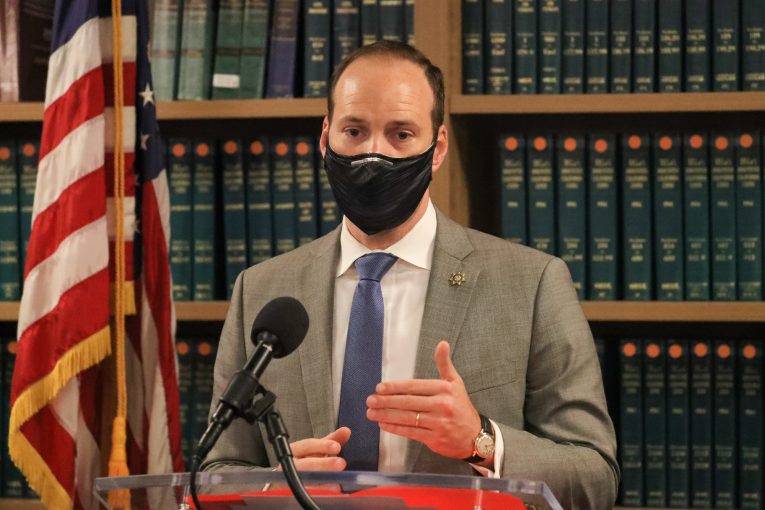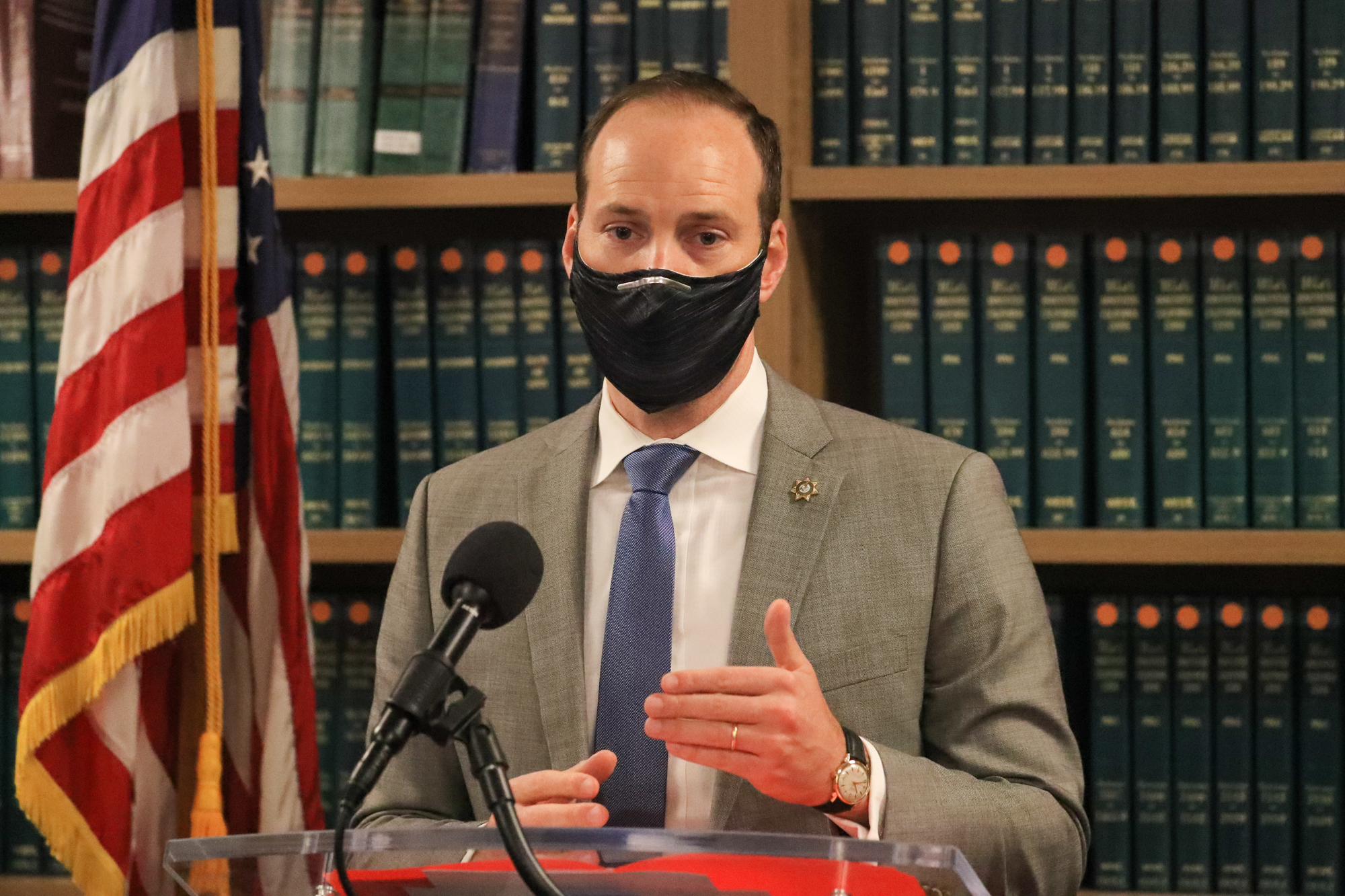

By Ankita Joshi
SAN FRANCISCO, CA – This year, 2022, marks the 50th anniversary of the first three victim assistance organizations, and their role in progressing the crime victims’ rights movement.
And this Monday, at the start of National Crime Victims’ Rights Awareness Week, San Francisco District Attorney Chesa Boudin announced the launch of a “new, first-in-office-history data dashboard that shares information on victims served by the District Attorney’s Office’s Victims Services Division (VSD).”
Data from the dashboard has shown that while reported crime has decreased in the city, the number of victims served has continued to proportionately grow, reaching a record high of 8,072 victims served in 2021.
Both District Attorney Boudin and Chief of Victim Services, Kasie Lee, have spoken about their commitment to expanding VSD, and to also establish new programs to support victims in San Francisco.
“As District Attorney, supporting victims and survivors is my top priority, which is why we have expanded our Victim Services Division dramatically in the past two years. In addition to the tremendous gains we have made, we will continue to advocate for more funding, resources, and staff for our Victim Services Division,” said DA Boudin.
“I am pleased that with our newest dashboard, the public can easily view information about our work to support victims—which I hope will encourage more victims to come forward,” he continued.
Lee also noted that they “have been able to expand VSD and promote language access, particularly for AAPI victims, who have historically been excluded.”
“I hope that victims from a diverse range of communities see these data on our new dashboard and recognize our office’s commitment to supporting victims regardless of whether a crime is reported or solved by police. I encourage more victims to come forward so we can provide services to even more survivors, especially in underserved communities,” she stated.
Data displayed on the Victim Services dashboard includes the number of victims the DA’s office has served through the VSD since 2011, including additional information such as demographics, primary language spoken, and types of crimes.
In addition to the new Victim Services dashboard, DA Boudin and Chief Lee have also expanded VSD through the creation of numerous new programs over the last two years.
They provided this list of advances:
Expanding Support for Crime Victims
- Creating, for the first time in office history, two property victim advocate positions to support victims of property crime;
- Creating an AAPI Elder Abuse Steering Committee to protect vulnerable community members;
- Securing the largest grant in office history to expand victim-centered restorative justice approaches to harm;
- Creating a policy to compensate victims of police violence just like any other victim, so families whose loved ones are victims of police violence don’t have to rely on GoFundMe accounts to pay funeral, burial, and medical expenses;
- Entering into a Memorandum of Understanding with UCSF’s program, Project Wraparound, to assist victims of gun violence.
Improving Language Access for Victims
- Adding numerous multi-lingual victim advocates to the District Attorney’s Office;
- Creating a new policy to ensure that all victims with limited English proficiency have access to interpreters in court;
- Developing a new policy to allow public-facing staff to take language classes during business hours to better serve non-English speaking community members.
Protecting Vulnerable Small Businesses
- Creating a pilot program with Supervisor Dean Preston in District 5 to compensate small businesses facing vandalism;
- Initiating a groundbreaking lawsuit against a law firm that was filing thousands of fraudulent lawsuits against small, frequently immigrant-owned businesses across the state.
Crime Prevention
- Creating a new initiative to assist members of the public in obtaining gun violence restraining orders to get guns out of the hands of people who pose a threat to themselves or others;
- Filing a civil prosecution against the manufacturers of ghost guns—unregulated, untraceable firearms assembled at home—to prevent them from flooding our city with these deadly weapons; and
- Signing an MOU with local colleges/universities to prevent on-campus sexual assaults and hate crimes.

